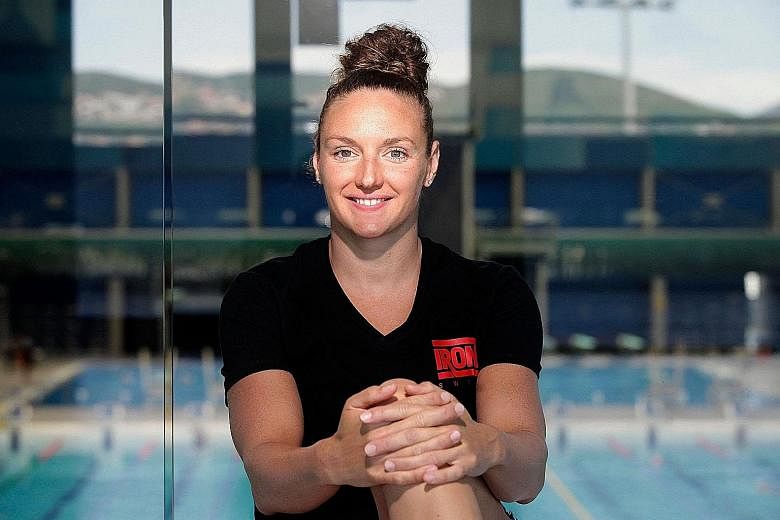TOKYO • "To be a good swimmer is in the genes of Hungarians." That is the view of triple Olympic champion Katinka Hosszu, one of the country's biggest stars in the pool.
Landlocked Hungary, with a population of around 10 million, routinely punches above its weight in Olympic swimming events.
Top-class facilities including the Duna Arena in Budapest and a network of others that have opened in recent years underline how seriously the sport is taken in Hungary.
But for 32-year-old Hosszu, who plans to compete in four events in Tokyo at her fifth Games, decades-long pedigree is the key factor.
"When you start swimming as a Hungarian kid, you have inspiring examples to follow, so we are carrying on in their path," she said.
Hosszu's hero when she was growing up was Krisztina Egerszegi, who won five individual gold medals over three consecutive Games between 1988 and 1996.
"For us Hungarians, it is not 'maybe if you're good, you can go to the Olympics one day'," said the swimmer nicknamed the "Iron Lady", who won three gold medals and a silver at the 2016 Rio Games.
"For myself, it's expected that I not just go but win, and not just once but again and again."
Hungary's 38-strong swimming squad for Tokyo includes not only veterans like Hosszu but new stars like 21-year-old Kristof Milak, the favourite to win the 200m butterfly after smashing Michael Phelps's world record in 2019.
Milak will also be a strong contender in the 100m fly, which will be defended by Singapore's Joseph Schooling.
"It defies sporting gravity that a country this size achieves as it does," said Gergely Csurka of the Hungarian swimming federation.
According to Csurka, the tradition is founded on successive generations of inspirational swimmers and coaches including Tamas Szechy, who steered Egerszegi to Olympic glory.
Considered the patriarch of Hungarian swimming, the late Szechy coached eight swimmers to 15 Olympic medals, including eight golds, from 1972 to 1996.
The "Hungarian school" pioneered by Szechy was based on longer-distance medley swimming rather than specialist sprints.
"Every kid with potential is trained in all four strokes but steered towards medley swimming, towards bearing 200m or 400m or more," said Csurka.
As well as a nationwide talent-spotting network, Attila Selmeci, Milak's coach and a disciple of Szechy's, points to the other secret of Hungary's success.
"Work, work, work!" he said. "Both coaches and swimmers work very hard, morning to night, often at training camps far from their families."
A deeper source of Hungary's love of water, however, can be traced to its centuries-old bathing and spa culture.
The country teems with more than 1,000 thermal water springs, including over 100 in Budapest alone, while Lake Balaton is central Europe's largest lake.
State funding has also helped build a swimming culture, with state-of-the-art pools around the country, including the Duna Arena and Kaposvar complex, as well as coaching programmes for young children.
"No one should be further than 20 minutes from a pool," said Hungary's state secretary for sport Tunde Szabo, herself an Olympic swimming medallist in 1992.
AGENCE FRANCE-PRESSE

